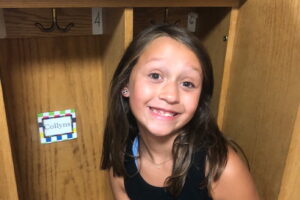If you have a junior in high school, it’s time to start seriously thinking about colleges. Yes, I’m serious. It isn’t like it used to be when we parents were younger and started thinking about what colleges we were interested in around Christmas time of our senior year. Somewhere along the line, someone hit the fast-forward button on the college timeline, and we need to catch up.
For parents like my husband and me—with our oldest being a junior—this can be confusing, uncertain and daunting. How do you know what to do and how to prepare? What if I’m forgetting something? How do I ensure my child is applying for any and every financial aid available to mankind? How do I help guide my child in this very important process and first step to true independence?
The good news is that there are numerous ways to get help when you’re preparing to send your child to college. Your high school counselor’s office is a great resource, along with Education Quest.
I’m extremely fortunate because I have some good friends who have kids a few years older than mine. I frequently pump them for information and use their experience and expertise in many different areas. The steps for college planning and preparation were no exception, and the following is the sage advice they shared with me…
ACTs Are Important, and Your Child Needs a Good Score
The ACT is an admissions test that most colleges require students to take before they can apply and be accepted (some universities may want the SAT instead, so do your research). With the ACT, your child should shoot for a 28 or higher. A score of 28 is the magic number for many scholarship levels and honors programs.
Be sure your child takes an ACT prep course and takes the ACT as many times as they can. It’s not a one-and-done score. Your child can always go back and improve their score. Keep in mind that a score of 25 or higher will open a few doors, but a 28 and higher provides another level of opportunities.
Document Everything Your Child Has Achieved
Keep a notebook or journal of every activity, service event, job and more that your kid is involved in. When it’s time to fill out college applications and scholarships and think about interviews (some colleges want a resume), then you have it all in one spot. Nothing they do is trivial, even the smallest volunteer job at the library. As my wise friend says, “You help someone because it’s the right thing to do, of course. However, write it down!”
Determine Which Type of College Your Child Wants
Big school vs. small school, out-of-state school vs. in-state school, public school vs. private school, affordable school vs. crazy expensive school, easy to get accepted school vs. impossible to get into school—the college options available to graduates are vast and varied.
Start by making a list of things you and your child really want or need in a college:
- Distance from home
- Size of student population
- Private or public university
- Maximum tuition limit
- Areas of study
- Application requirements
- Scholarship offerings
Narrow that list down and start researching when each college has visit days for juniors and seniors (usually in the fall and spring). Also, find out how to set up a private visit if you can’t make one of those dates. Plan the visits around your already busy high school schedule. Some schools may allow excused absences for college visits. Consider grouping visits at colleges that are close by each other.
If time and money allow, explore colleges away from home. According to my college-mom friend, “Some universities put on quite a recruiting show, and it’s really a fun opportunity to see some really great places!” If your child is interested in going far away to college, make sure to visit a few times. It might seem really great the first time you’re there because you’re so mesmerized by the recruiting, but a second visit will allow you and your child to make sure you’re both truly comfortable with the idea.
Have Your Child Apply to Multiple Colleges & Scholarships
Send in a lot of applications, even if the schools aren’t at the top of your child’s list. More importantly, applying to multiple colleges keeps your child’s options open in case they don’t get into the school they want or if they change their mind and want to stay closer to/move farther from home. Plus, the acceptance packets are fun to get in the mail!
This is the same with scholarships: Apply for as many as you can! There are SO many scholarships out there. Know that many are only available to students staying in-state, so you have to search hard if you plan to go out-of-state. Even as a junior, there are scholarships available. Your child might get none, or they could get tons. Regardless, it’s a good experience for them. They have to write, find their strengths and get outside of their own box.
You can use The College Board’s free Scholarship Search tool to find scholarships.
Make Decisions That Will Be Best for Your Child
There are many decisions to make once your child chooses a college or university, such as the Greek system (i.e., fraternities and sororities), living arrangements and roommate choices, and coming home on weekends or for holidays and breaks. Every child is different, so it’s important to do what works best foryour child—even though it may differ from what others believe a college student is supposed to do, or even what you believe your child should do. Remember, this is about your child’s future.
And maybe raise a genius so they ace the ACT! But in the end, the best advice is to relax and enjoy this fun, exciting time in your child’s life.
Thank you to my friends for sharing their invaluable experience and words of wisdom!
Is Your Child Interested in a Health Profession?
Explore Bryan College of Health Sciences with their virtual tour or schedule an in-person tour today!

Anne Blankenbiller
K-12 & Teens
Most of my mornings, afternoons, and evenings are spent driving the kids here and there—and then back to here again. Every child is a gift on loan from God. As parents, our job is to raise that child to be an independent adult who can contribute to the world using the gifts and talents he or she was given. It is hands-down the most important job on earth!









